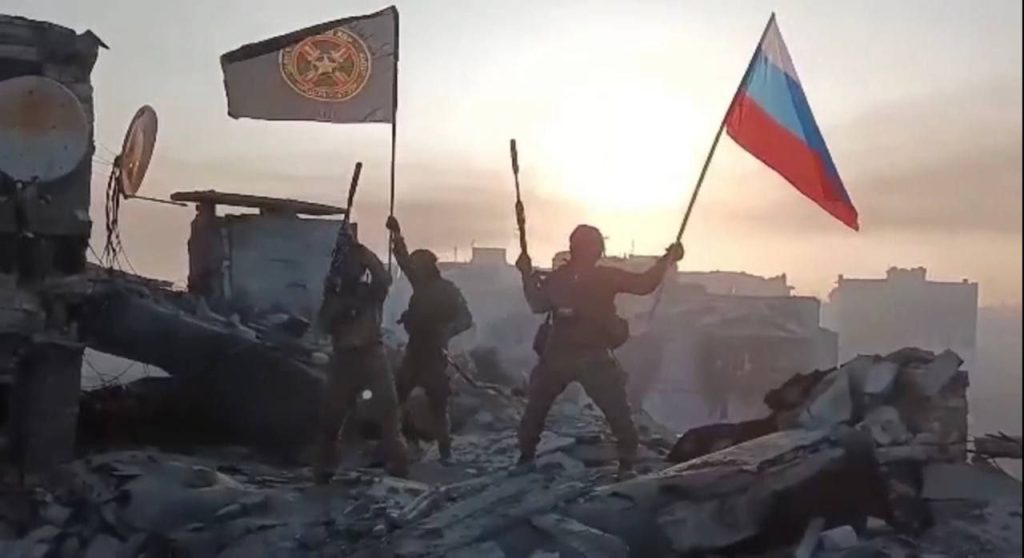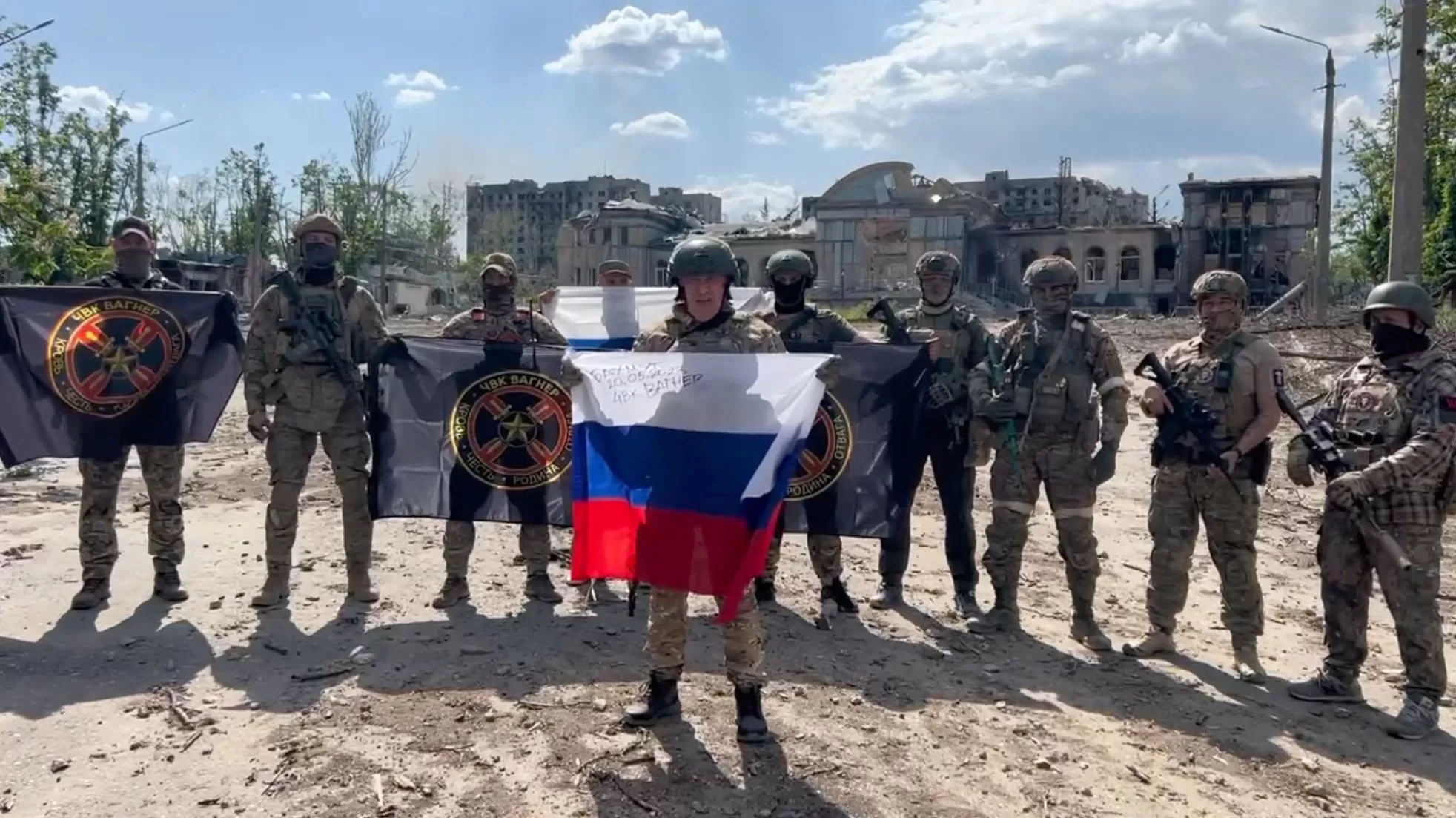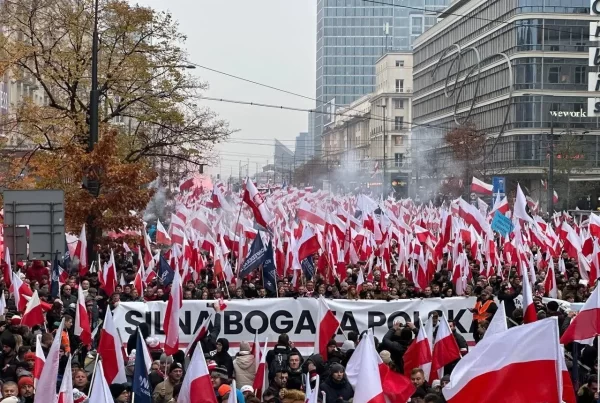A dramatic chapter has unfolded in the turbulent story of the Donbas region, with Evgeny Prigozhin, the battle-hardened chief of the Wagner private military company, striding into the spotlight to announce that Russian forces have wrested control of the key city of Bakhmut from their Ukrainian adversaries. The indomitable struggle against Ukrainian forces for Bakhmut has raged since last year.
In a video message unveiled today, a triumphant Prigozhin claimed that the city, a pivotal player in the contested Donbas region, had finally yielded to his forces. He indicated that the last Ukrainian stronghold, a towering fortress of high-rise buildings, had been subdued, and was now firmly under the iron grip of the Russian forces.
Revealing the strategy of the Wagner forces, Prigozhin announced plans to maintain their stronghold in Bakhmut until the following Thursday, using this time to build a robust defence around the city. Following this period, he informed, the reins of control would be smoothly transitioned to the Russian Defence Ministry, while his Wagner servicemen, having endured months of relentless combat, could then retire for some well-deserved rest and recuperation.
Prigozhin pulled no punches as he spoke about the gruelling operation in the city, a relentless saga of conflict spanning 224 days that he chillingly dubbed ‘the Bakhmut meat-grinder’. He struck a triumphant note as he spoke of his forces claiming every building in the city, in a bid to underline the totality of their victory.
However, his proclamation has been sharply contradicted by Kiev. Responding to these claims, Ukrainian military spokesperson Sergey Cherevaty staunchly maintained Ukrainian forces were still waging a battle in Bakhmut.
Notably, Prigozhin also took the time to direct a personal message towards the President of Ukraine, Volodymyr Zelensky. Displaying an uncharacteristic tone of sincerity, Prigozhin extended his admiration for the Ukrainian forces who were involved in the defence of Bakhmut. He offered commendation, sans sarcasm, acknowledging the valiant and commendable efforts exhibited by the Ukrainian troops in the face of adversity. Their bravery and skill in battle did not go unnoticed as they fought tooth and nail to defend the city. Regardless of the wider political context, the recognition of the courage and tenacity of these soldiers painted a striking image of respect for their fierce commitment to the cause.
Bakhmut has a storied past that dates back to the times of the Tsarist empire. Once a bustling nerve centre of the salt trade under the reign of Catherine the Great, it transitioned into an industrial powerhouse in the Soviet era, churning out vital resources like coal and ceramics. However, recent years have seen Bakhmut emerge from these shadows of history to take centre stage in the ongoing conflict between Ukraine and Russia. As the pendulum of control swung back and forth between the two sides, the destiny of the city had come to epitomise the tumultuous history and the persistent struggle of this troubled region.
Adding another fascinating dimension to this rich tapestry is the remarkable journey of the city’s name. The city was originally christened Bakhmut, taking its name from the Bakhmutka River that traces its path along the city’s contours. Throughout the era of the Tsars and deep into the Soviet epoch, this moniker remained steadfast. However, in 1938, in the throes of the Soviet era, the city was renamed Artyomovsk, in a gesture of respect to the Russian revolutionary Fyodor Sergeyev, who was more commonly known as Artyom. In the present day, amidst the shifting power dynamics of the region, the city’s name serves as a symbol of these tensions. Despite Ukraine reverting to the original name of Bakhmut in 2016 as part of decommunization laws, Russian forces and separatists still frequently use the Soviet-era name, Artyomovsk. Regardless of the name it bears, the city’s strategic importance in the Donbas region cannot be underestimated, marking it as a key asset in the high-stakes tussle for control.
Owing to the unmistakable ties of the name Artyomovsk to the communist era, nationalists tend to lean towards the original name, Bakhmut. This preference is indicative of their commitment to distancing themselves from the vestiges of Soviet influence and embracing the rich and authentic historical legacy of their nation.
Make Bakhmut Great Again!
Addendum: ‘Vladimir Putin congratulated the assault units of Wagner as well as all servicemen of units of the Russian armed forces who provided them with the necessary support and flank cover on the completion of the operation to liberate Artyomovsk’, the TASS news agency quoted a Kremlin statement as saying.







If Prigozhin enters politics he is the future leader of Russia. A once in a lifetime leader!
His security look as dangerous as it gets.
Extremely serious professionals.
The most important military victory of our lifetimes.
Evidence that the globalists can be beaten on the battlefield by a well-trained, experienced non-state actor.
Blood against Gold! And blood won!
Finally, something to celebrate! I hope they stay in the action!
Some well-deserved rest and then back in the action.
Zelenskiy compares Bakhmut to Hiroshima and then pleads with the American President for military aid!!!
Part actor, part drug addict madman.
A comparison that makes little sense to a sane person.
And how many lives were lost on both sides in this conflict, a conflict that could have been avoided if not for western expansionist policies. Now that Bakhmut (Artyomovsk) has fallen a new round of sanctions against Russia has been proposed at the G7 meeting taking place in Japan that will only exacerbate the “collective west’s” own worsening economic condition; all this as Zelensky is abroad begging for yet more money and weapons, many countries of which have answered that call and have now offered sending fighter jets to Ukraine on top of financial assistance, thereby depleting western military stocks ever further while these same countries rush headlong into economic recession by pledging funds they don’t have.
Using Ukraine’s destruction as a nation to slow bleed Russia into a state of economic and military ruin was in all likelihood in the advanced planning stages by the “western powers” since the events of the Maidan coup, the only unknown factor being how long it would take to goad Russia into launching a military action to achieve those ends. Russia for their part looks to have seen that a military conflict was unavoidable at some point and planned ahead to insulate themselves not only from economic sanctions (gold backed Ruble, BRICS alternative economic bloc, etc.) but from over-extending their own military by relying more on PMC’s (private military companies) such as Wagner or allied military forces such as the Chechen and Donbas militias. Now it simply comes down to who will bleed out first, Russia or the “collective west;” Ukraine having become the double edged sword cutting both ways.